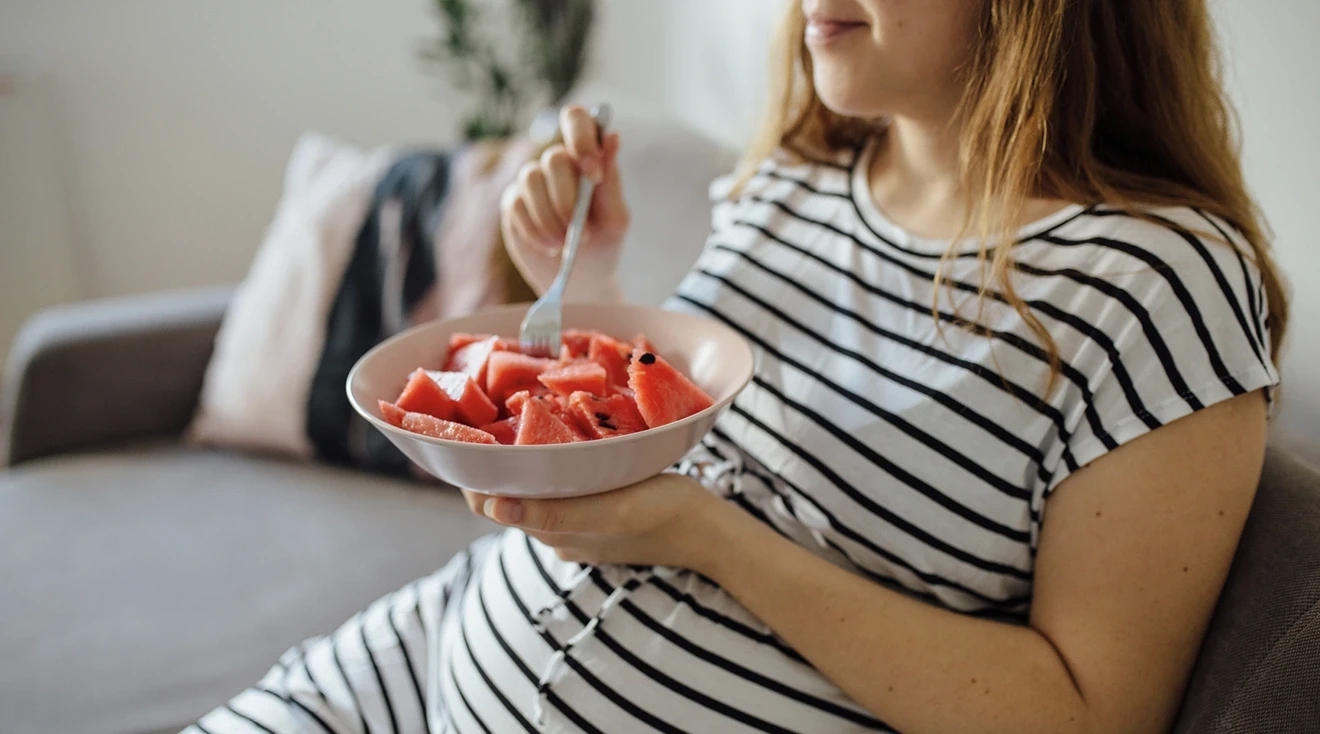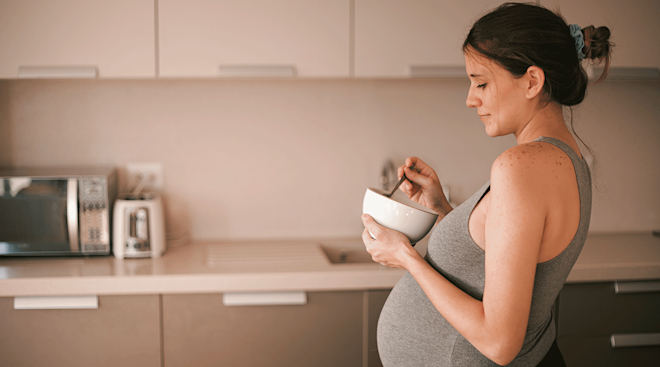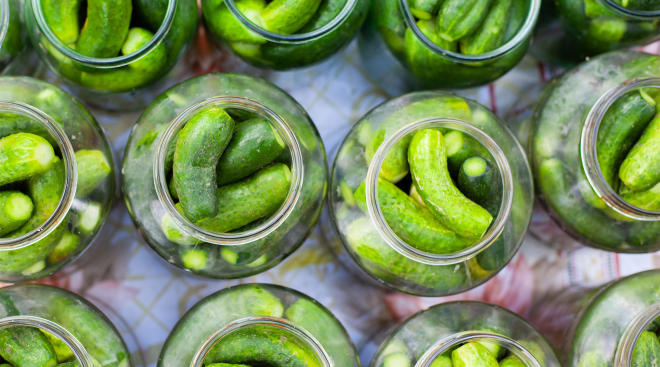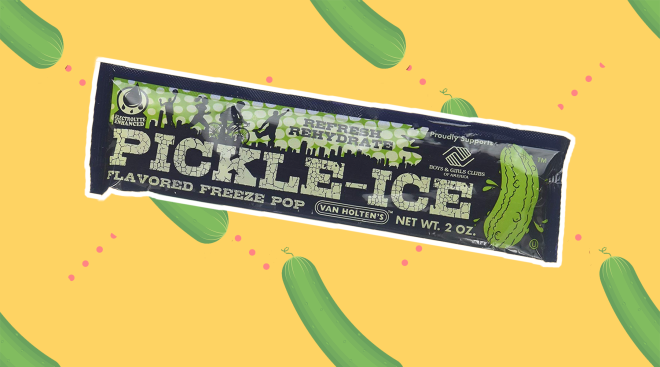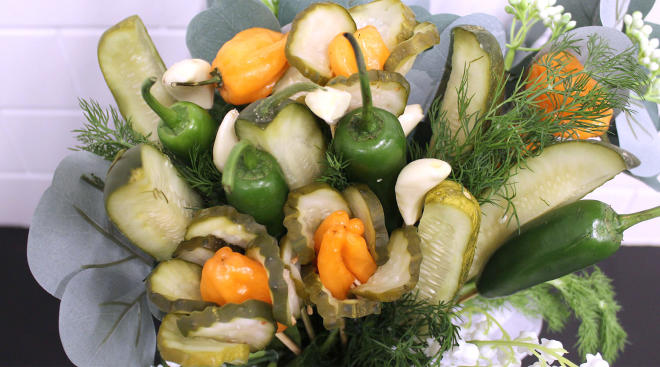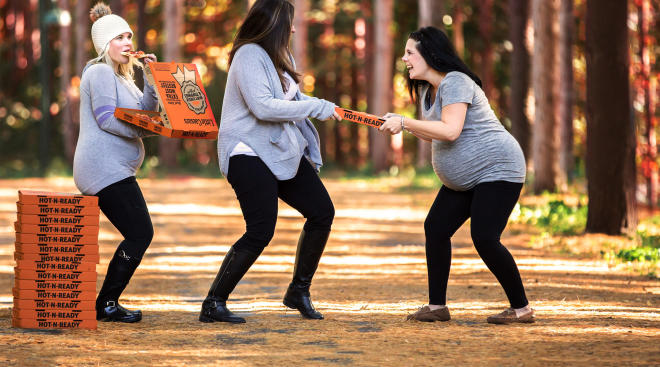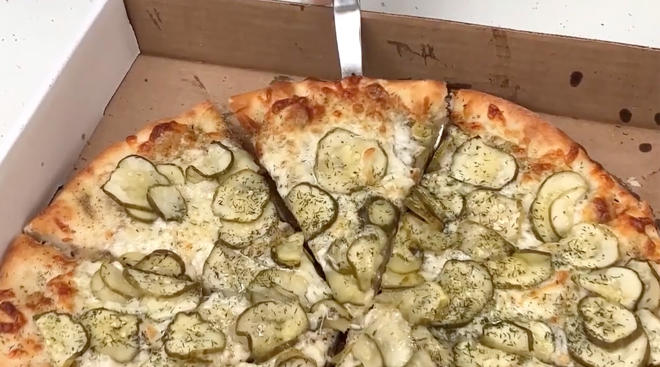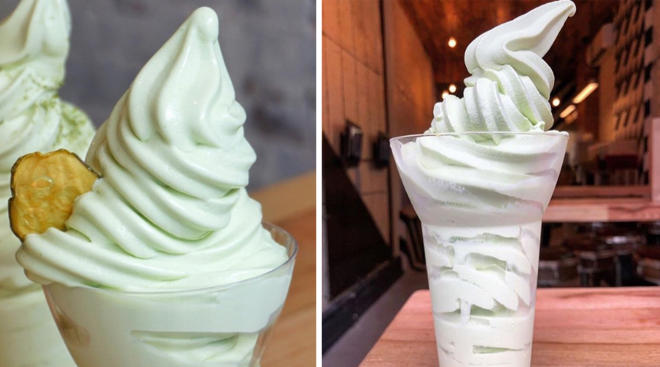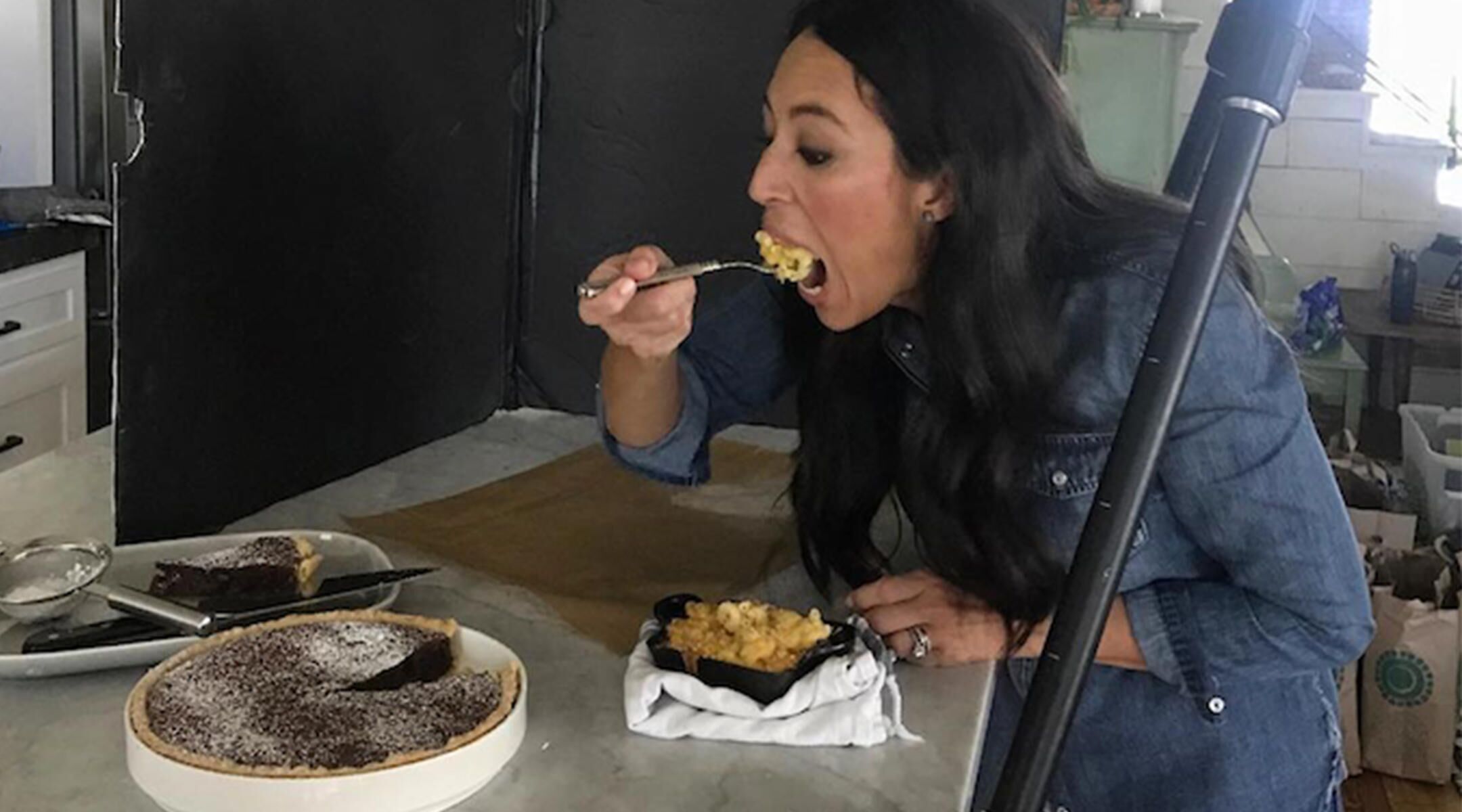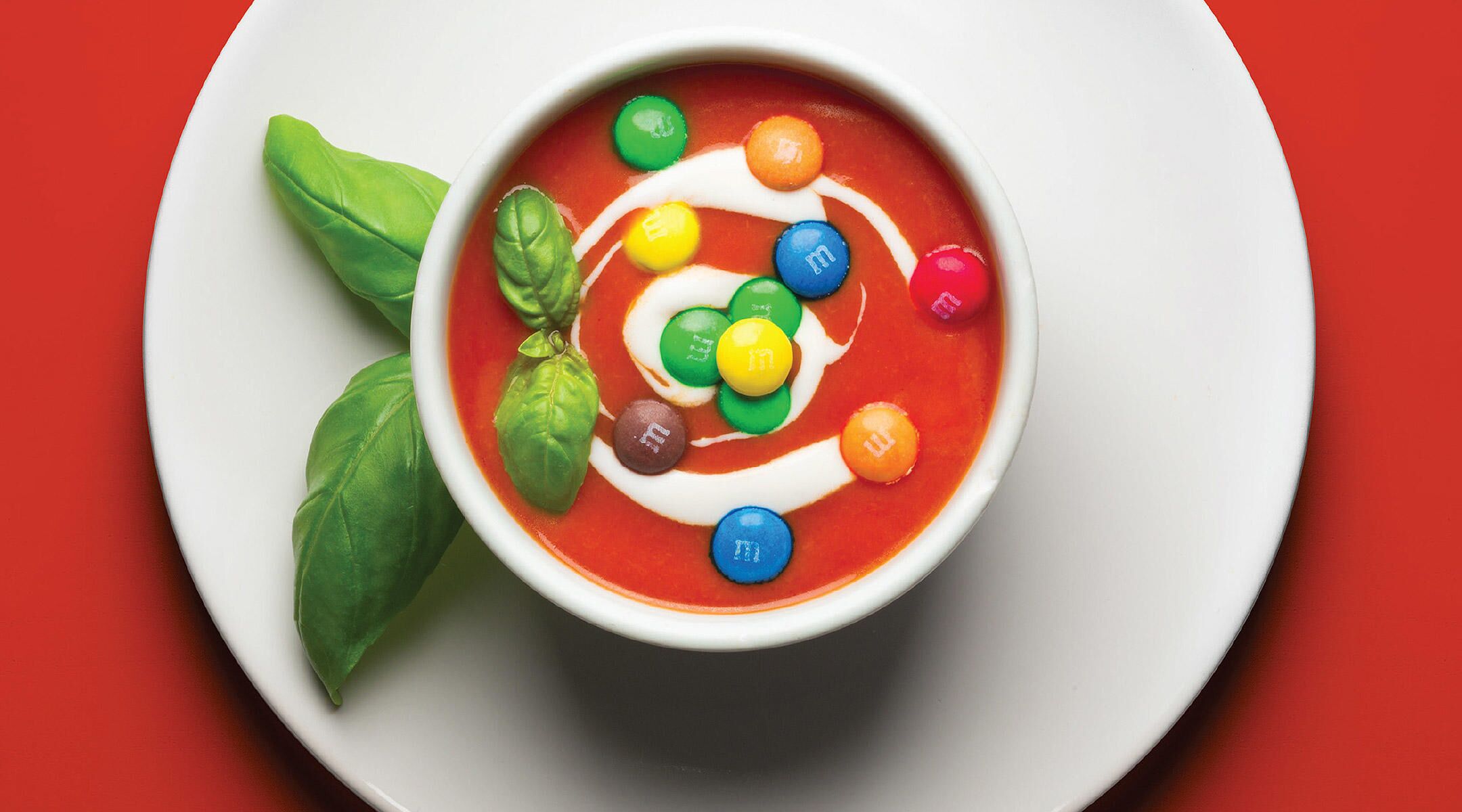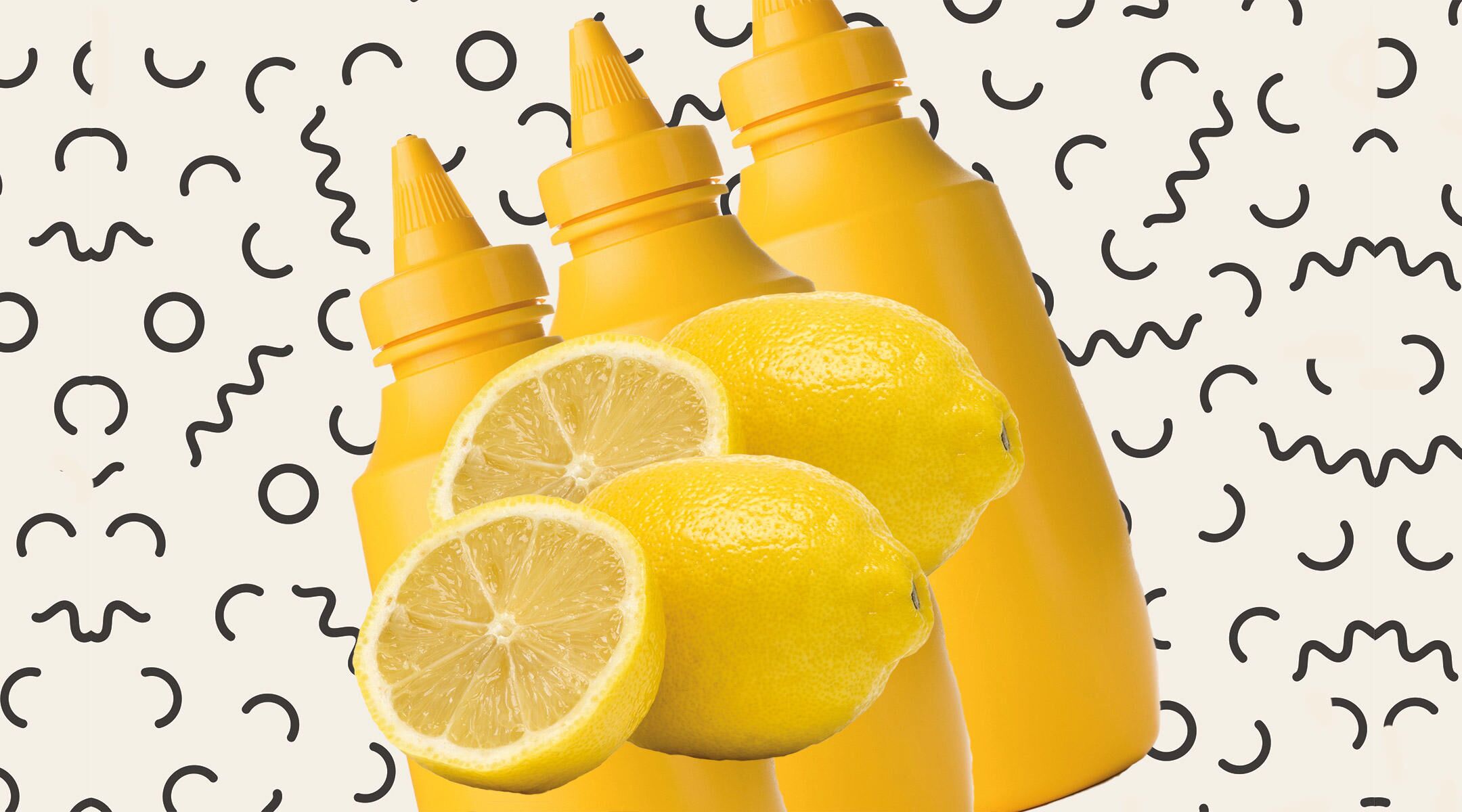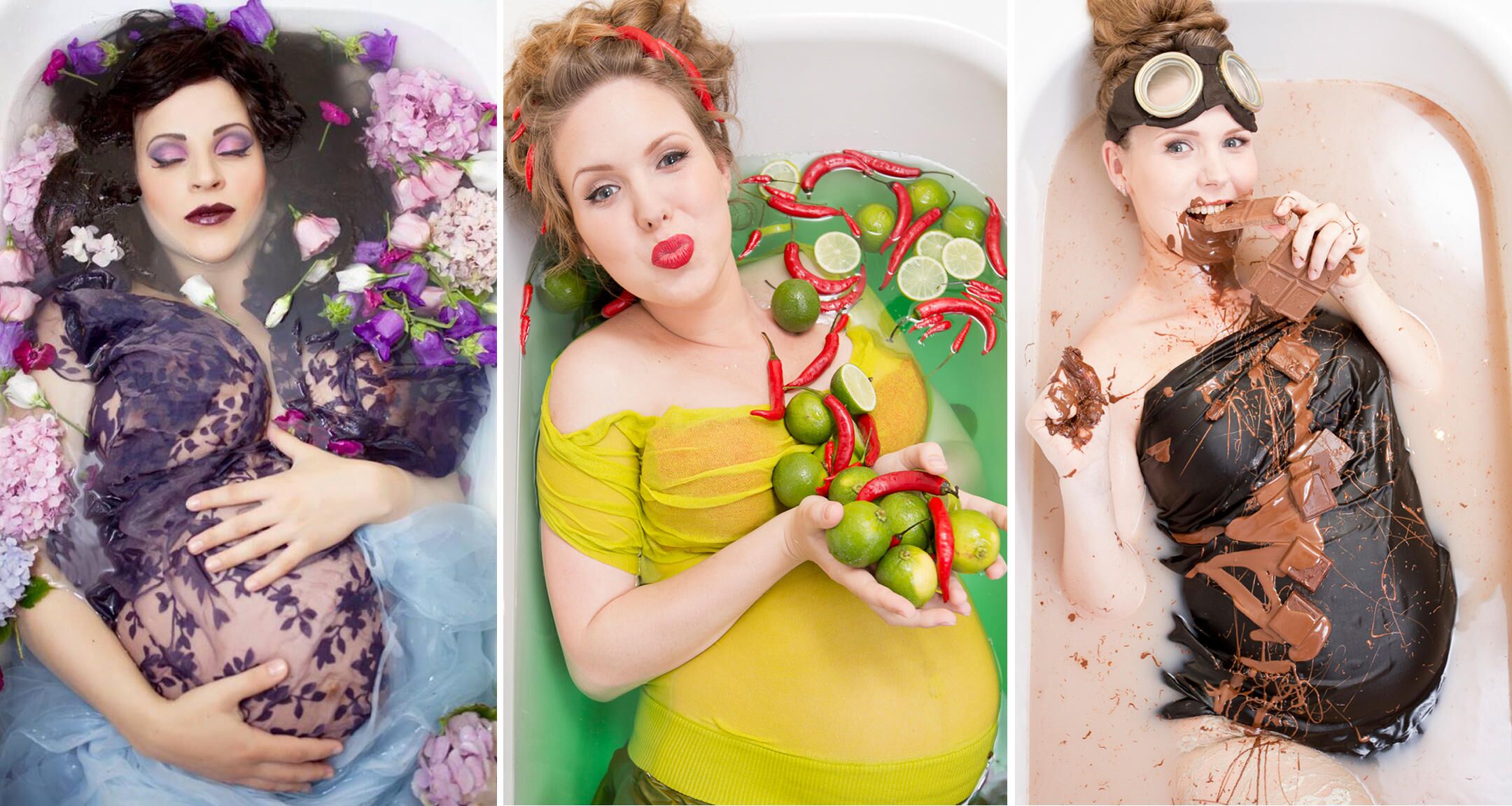Here’s What’s Up With Those Pregnancy Cravings
Some pregnancy cravings sound like they’re out of an extreme eating reality TV challenge: cheeseburgers slathered with hot fudge, vanilla ice cream topped with pulled pork, pickles covered in peanut butter. (Try them if you dare!) Of course, there are plenty of tamer cravings, like tacos, sour candies or an extra handful of chocolate chips. But when do pregnancy cravings start, how long do they last and what’s driving your intense desire for specific foods? We spoke with a handful of experts about what’s healthy, what’s not and what to do if you’re craving something you most definitely shouldn’t eat.
Simply put, pregnancy cravings are food urges that extend beyond the bounds of simple hunger. According to research, between 50 and 90 percent of pregnant women in the US experience cravings for specific foods during pregnancy.
At some point during your first trimester (or possibly later), you may find yourself longing for a triple-scoop ice-cream sundae, salty potato chips or both at the same time. Surges in food cravings are very real (and very normal) for pregnant women, so don’t let anyone tell you the intense need for nachos is all in your head. That said, there’s very little research that tells us why specific cravings take over.
No one can say for sure why pregnancy cravings happen, but the most accepted theories revolve around cultural and psychosocial factors, nutritional deficits, ingredients in the desired foods and—you guess it—hormonal changes. “I think part of it might also be related to people getting food aversions or things that trigger nausea,” says Jennifer Lew, MD, an ob-gyn with Northwestern Medicine Regional Medical Group in Sycamore, Illinois. “Usually the cravings are something that sounds good to eat or something they can tolerate.”
It also makes sense that you’d yearn for something that your body is lacking. “A specific food may signal a nutrient need; craving pickles and other salty foods during pregnancy may be your body’s way of regulating your fluid balance,” explains Casey Seiden, RD, a prenatal registered dietician and certified diabetes educator. Wanting meat may mean you need more iron; this can be especially confusing for those who otherwise subscribe to a vegetarian or vegan lifestyle. (Fortunately, there are other iron-rich options if you choose not to eat meat.)
Cultural norms and media messaging around food are also likely to influence what appeals to us in pregnancy and not, notes Erin Skinner, RD, a registered dietician, certified pregnancy nutritionist and the owner of Empowered Nutrition. Research, for example, shows that while chocolate is one of the most commonly craved food in the US, few people in Egypt feel a strong impulse to have it. A separate study noted that women in Japan are more likely to crave rice, which highlights the influence of a region’s culinary customs on people’s food-related preferences.
So what about folklore proclaiming that longing for sweets when you’re pregnant means you’re having a girl, while craving salty or protein-heavy foods means you’re having a boy? As fun as these conjectures are, they’re just myths. There’s no evidence that pregnancy cravings predict baby’s biological sex.
Food cravings can happen any time during pregnancy. Cravings that coincide with food aversions are likely to start in the first trimester when your hormone levels ramp up, notes Lew. And while you may want French fries up until the day you deliver, generally speaking, pregnancy cravings tend to peak during the second trimester before dropping off in the third.
The sky’s the limit on what you might pine for when pregnant, but studies show that sweets and starchy carbohydrates like bread and pasta top the list. According to Frontiers in Psychology, other common pregnancy cravings include:
- Spicy food
- Salty foods, like chips and French fries
- Fruits and fruit juice
- Milk and other dairy
- Pickles
- Fast food
- Fruit and vegetables
- Pizza
- Sweets
- Ice
So-called “weird” pregnancy cravings are also common. One Bump user couldn’t get enough of brownies with mustard, and mac and cheese mixed with lo mein. Another ate rice with brown sugar, barbecue sauce and butter. “I thought it was soooo good, and my husband looked at me like I was crazy,” she says. As odd as some pregnancy cravings can be, as long as they’re safe food items and your diet is otherwise balanced, Lew says there’s no harm in enjoying your beloved Oreos topped with pickles, or Goldfish dipped in strawberry ice cream.
Deciding what to eat and what not to eat can be one of the more puzzling parts of pregnancy. Questioning how much your diet needs to change to become more nutrient-rich is a common question Seiden gets asked about from pregnant clients. Your doctor, midwife or nutrition specialist is the best source of information for what type of diet suits your needs best. If you fall into the normal BMI range before pregnancy, they’re likely to recommend you gain 25 to 35 pounds during pregnancy (a little more if you were underweight and less if you were over). What’s more, remember that you’re not really eating for two. According to the American Pregnancy Association, in your second and third trimester, you only need an additional 300 calories a day, give or take—roughly the equivalent of a bagel with cream cheese.
So then how do pregnancy cravings—especially those made from refined sugar and empty carbs—fit into a healthy regimen? Most experts agree that indulging in your cravings is okay in moderation, as long as you’re otherwise eating a balanced diet. Seiden says that you want to make sure you’re getting enough protein, healthy fats and quality carbs. Skinner adds that it’s ideal to take in a variety of plants and greens each day too.
Never giving into non-nutritional cravings may seem like the healthy thing to do for you and your growing baby, but abstaining completely from tasty things you long for may signal a different type of health problem. “If you have very rigid restrictive thinking around food, that mindset may not serve you well in other ways,” said Skinner. “I would encourage someone like that to have a more balanced approach to food. We want to be able to model to our children how to live in a world where cupcakes and cookies are real.”
You may be hungry for certain things throughout your entire pregnancy, or you might notice wanting saltier foods as your pregnancy comes closer to term. Studies show that cravings tend to lessen during the third trimester and nearly drop off completely after delivery, although researchers are unclear as to why.
Eating Thai peanut noodles on top of gelato may sound gross to your non-pregnant partner and friends, but as long as the food is prepared safely, you shouldn’t feel bad about eating it, says Skinner.
That said, there are some red flags when it comes to pregnancy cravings. For starters, overindulging in non-nutritious things like junk food or fast food can lead to excessive weight gain, which may cause complications for you and baby.
You’ll also want to steer clear of certain foods during pregnancy regardless of how strong your craving may be. For example, you’ll need to skip sushi with raw fish and opt for a cooked roll instead. And if you must have the occasional Italian hoagie, warm up the deli meat to 165 degrees Fahrenheit before eating it. Talk to your doctor if you have questions about what foods are and aren’t safe during pregnancy.
Finally, you should call your provider if you’re drawn to eating non-food items like dirt, clay, soap or even ice. This could indicate a condition known as Pica, which is likely connected to iron deficiency or poor nutrition. While craving ice during pregnancy and chewing on some crushed cubes isn’t going to harm you or baby, ingesting soap or other items that contain toxic ingredients is a whole other story.
Pregnancy cravings will come and go (and maybe come again!). Try to enjoy these moments and make yourself and your belly happy—within reason, of course. While you’re at it, consider grabbing a journal and write down what you’re loving and craving during your pregnancy. “You can share it someday with your kids!” says Skinner. “Document it and have a good laugh about it later.”
Please note: The Bump and the materials and information it contains are not intended to, and do not constitute, medical or other health advice or diagnosis and should not be used as such. You should always consult with a qualified physician or health professional about your specific circumstances.
Plus, more from The Bump:
Jennifer Lew, MD, is an ob-gyn with Northwestern Medicine Regional Medical Group in Sycamore, Illinois. She earned her medical degree from the University of Illinois at Chicago College of Medicine.
Casey Seiden, RD, is a prenatal registered dietician and certified diabetes educator.
Erin Skinner, RD, is a registered dietician, certified pregnancy nutritionist and the owner of Empowered Nutrition.
Frontiers in Psychology, Pickles and ice cream! Food cravings in pregnancy: hypotheses, preliminary evidence, and directions for future research, September 2014
PLOS ONE, Does culture create craving? Evidence from the case of menstrual chocolate craving, July 2017
Appetite, Rice and sushi cravings: a preliminary study of food craving among Japanese females, May 2008
Frontiers in Psychology, Pickles and ice cream! Food cravings in pregnancy: hypotheses, preliminary evidence, and directions for future research, September 2014
American Pregnancy Association, Pregnancy Nutrition, 2023
Frontiers in Psychology, Pickles and ice cream! Food cravings in pregnancy: hypotheses, preliminary evidence, and directions for future research, September 2014
Learn how we ensure the accuracy of our content through our editorial and medical review process.
Navigate forward to interact with the calendar and select a date. Press the question mark key to get the keyboard shortcuts for changing dates.
































